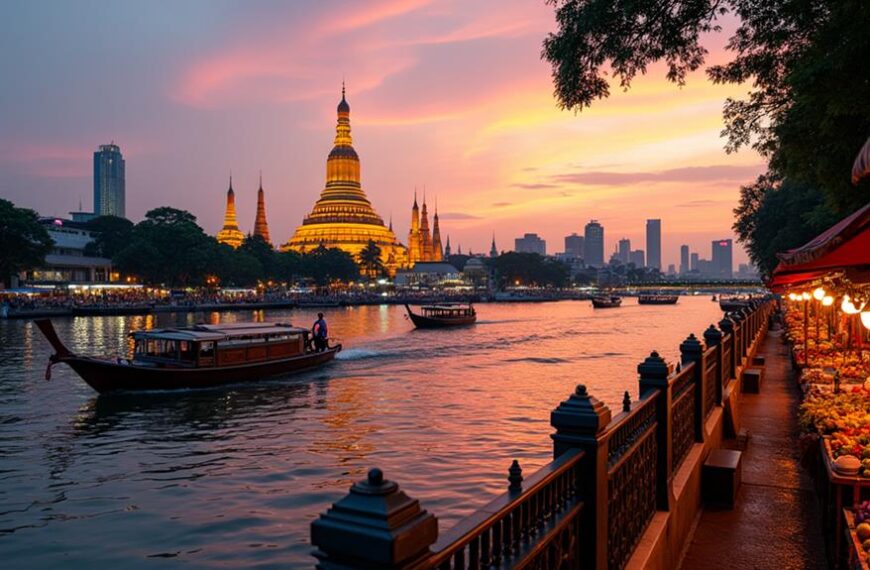When a foreigner dies in Thailand, you'll need to navigate a complex process involving legal procedures and cultural considerations. You'll have to contact the deceased's embassy, engage a local funeral director, and coordinate with Thai authorities for necessary documents. If you're planning to repatriate the body, be prepared for significant costs and paperwork. Thai law typically favors cremation, but burial options are available. You'll need to handle estate matters, potentially with legal assistance, especially if there's no valid will. Understanding Thai inheritance laws and cultural practices is essential. The process can be challenging, but proper guidance can help you manage this difficult situation.
Table of Contents
Key Takeaways
- Local authorities and the deceased's embassy are notified to confirm identity and inform family members.
- A death certificate is issued, and legal procedures for handling the body and estate are initiated.
- Cremation is common in Thailand, but repatriation of remains is possible with proper documentation and fees.
- The deceased's assets in Thailand are subject to Thai inheritance laws and probate procedures.
- Costs for funeral services, cremation, or repatriation are typically the responsibility of the deceased's family or estate.
Legal Procedures for Foreign Deaths
Thailand's legal procedures for foreign deaths involve several important steps. If you're a foreigner in Thailand dealing with the death of a fellow expatriate or tourist, it's essential to understand these processes.
The first and most significant action is to contact the embassy or consulate of the deceased's home country. This step guarantees proper notification and initiates the necessary diplomatic procedures.
Next, you'll need to engage a local funeral director who can guide you through the complexities of handling a foreign death in Thailand. They'll assist with paperwork, body preparation, and repatriation if required. Simultaneously, you must coordinate with local Thai authorities to obtain the necessary death certificates and permits.
In cases where the deceased foreigner left assets in Thailand, you may need to hire a Thai attorney to navigate probate and estate distribution. Thai law recognizes foreign wills, but they must meet specific requirements outlined in the Civil and Commercial Code. If there's no will, Thai inheritance law dictates asset distribution among legal heirs according to six classes, each with designated rules. Understanding these procedures can help streamline a challenging process during a difficult time.
Embassy Involvement and Responsibilities
Invariably, when a foreigner dies in Thailand, the embassy plays a central role in managing the aftermath. The Thai authorities promptly notify the appropriate embassy, which then sets in motion a series of essential tasks.
Your embassy's primary responsibilities include confirming the deceased's identity and informing family members of the tragic event. They'll guide you through the necessary legal procedures, such as obtaining death certificates and authorizing the release of remains after any required autopsies.
If you're dealing with a loved one's death in Thailand, you can rely on your embassy for valuable assistance. They'll provide information on local burial practices, recommend reputable funeral homes, and offer guidance on the costs associated with repatriating remains to your home country.
In cases where the deceased has no family ties in Thailand, the embassy may take a more active role in making arrangements. Their involvement guarantees that even in the absence of local connections, the deceased is treated with dignity and respect.
Repatriation Process and Costs
When repatriating a deceased foreigner's remains from Thailand, you'll need to coordinate with both the embassy and a local funeral home. The funeral director will handle arrangements and liaise with authorities for necessary documentation, including the death certificate.
You should be prepared for significant costs, which can range from 90,000 to 100,000 Baht for transportation to countries like Australia.
Embassy Involvement
During the difficult process of repatriating a deceased foreigner from Thailand, the embassy plays a pivotal role. They assist in coordinating with local authorities and facilitate the release of remains to the next-of-kin. The embassy provides invaluable guidance on selecting reputable funeral homes in Thailand to handle necessary arrangements for the deceased.
When you're faced with this challenging situation, the embassy can help you navigate the complex repatriation process. They'll assist you in obtaining required documents, including:
- Death certificate
- Embalming certificate
- No objection letter from the embassy
The embassy also coordinates the transportation of the deceased's remains, ensuring compliance with international repatriation regulations and arranging flights. They're there to provide support and information throughout the process.
It's important to note that repatriation costs can range from $3,000 to $5,000 USD. The embassy can offer guidance on these expenses and help you understand the financial aspects of the process.
If you find yourself in this unfortunate situation, don't hesitate to Contact Us at the embassy. We're here to provide support and assist you through this difficult time.
Funeral Home Arrangements
Funeral homes in Thailand play an important role in managing arrangements for deceased foreigners. When you're coping with the loss of a loved one in Thailand, you'll need to engage a local funeral director to handle the necessary procedures. These professionals are experienced in handling the complexities of international deaths and can provide invaluable assistance during this challenging time.
The costs associated with funeral arrangements in Thailand can vary depending on your chosen options. If you decide on cremation and disposal of ashes within Thailand, you can expect to pay between 30,000 and 35,000 Baht. However, if you opt to repatriate the remains to Australia, the costs will be notably higher, ranging from 90,000 to 100,000 Baht.
As the next of kin, you'll be responsible for covering these expenses and working with the Embassy to release the remains. Specialized funeral services, such as AsiaOne International Repatriation & Funeral Services, can help you manage this process. They'll assist with paperwork, coordinate with local authorities, and guarantee that all necessary arrangements are made in accordance with Thai regulations and your wishes.
Transportation and Documentation
Repatriating a loved one's remains from Thailand involves a complex process of transportation and documentation. You'll need to coordinate with a funeral director, the embassy, and relevant authorities to guarantee all necessary paperwork is in order. The required documents typically include:
- Death certificate
- Passport of the deceased
- Embassy authorization
The repatriation process may involve embalming, cremation, or other funeral arrangements based on your preferences and those of the deceased. Funeral homes in Thailand can assist you with handling the paperwork, transportation, and coordination with the embassy for the release of the remains.
It's important to be aware of the costs associated with repatriation. The expenses can range from approximately 90,000 to 100,000 Baht, excluding additional funeral costs. This covers the necessary procedures and transportation of the remains to the home country.
Throughout this challenging time, you'll work closely with the funeral home and embassy to guarantee all legal and administrative requirements are met. They'll guide you through obtaining the death certificate and other essential documents, making the process as smooth as possible during this difficult period.
Cultural Considerations in Thailand
Understanding the cultural nuances of Thailand is essential when dealing with the death of a foreigner in the country. In Thai culture, cremation is the preferred method for handling remains, which may differ from practices in the deceased's home country. You'll need to navigate these cultural differences sensitively, especially when discussing arrangements with family members.
Thai customs emphasize family involvement in post-mortem decisions, so you'll likely encounter emotional discussions about the deceased's wishes. If there's a Last Will, it can significantly influence the process, but be prepared for potential conflicts between cultural expectations and the deceased's expressed desires.
You'll find that transferring a foreigner's body out of Thailand can be intricate due to cultural and practical considerations. It's important to understand that local customs may impact the feasibility of certain arrangements. When making decisions, you'll need to balance respect for Thai traditions with the wishes of the deceased and their family. Being aware of these cultural aspects will help you navigate the situation more effectively and compassionately during this difficult time.
Importance of Wills for Foreigners

As a foreigner in Thailand, having a legally valid will is essential to guarantee your assets are distributed according to your wishes. Your will's clarity can prevent potential disputes among family members and loved ones during an already difficult time.
Legal Validity Abroad
For foreigners living in Thailand, having a legally valid will is necessary to guarantee your final wishes are respected and your assets are distributed according to your desires. While Thailand recognizes foreign wills, it's essential to make sure your will meets the specific legal requirements outlined in the Thai Civil and Commercial Code. Without a properly executed will, Thai inheritance law will govern the distribution of your assets, which may not align with your intentions.
To ensure your will's legal validity abroad, consider these steps:
- Seek legal advice from experts familiar with Thai inheritance laws
- Draft your will in compliance with local regulations
- Contact the Embassy for guidance on international legal matters
A well-drafted will provides clarity for your family members and loved ones regarding the handling of your assets after your passing.
It's important to note that having a valid will in place can prevent complications in estate distribution and minimize potential disputes among heirs.
Asset Distribution Clarity
Ensuring asset distribution clarity is essential for foreigners residing in Thailand. If you're living in the country, creating a will that aligns with Thai legal requirements is crucial. Without one, your assets may be distributed according to Thai inheritance laws, which mightn't reflect your wishes.
To achieve asset distribution clarity, your will should comply with the specific requirements outlined in Thailand's Civil and Commercial Code. This ensures that your intentions are legally enforceable and respected after your passing. By crafting a properly structured will, you can bypass the default Thai inheritance laws that dictate asset distribution among legal heirs.
It's important to understand that Thai law recognizes six classes of legal heirs, each with a specific order of priority. If you die without a will, your assets will be distributed according to this hierarchy, potentially leaving out individuals you intended to include.
Avoiding Familial Disputes
Creating a will is crucial for foreigners in Thailand to prevent potential familial disputes after their passing. Without a will, Thai inheritance laws dictate asset distribution among legal heirs, which may not align with your wishes and could lead to conflicts. By drafting a clear and all-inclusive will, you'll provide guidance to your loved ones during a challenging time and minimize the risk of disagreements.
A well-crafted will can help you:
- Specify your preferences for burial, cremation, or repatriation of remains
- Outline the management and distribution of your assets
- Designate someone to act on your behalf and handle post-mortem arrangements
By taking these steps, you'll ensure that your final wishes are respected and carried out according to your intentions. It's crucial to maintain contact with your designated representative and keep them informed of any changes to your will or circumstances.
Proper estate planning through a will offers clarity and direction for your beneficiaries, reducing the likelihood of misunderstandings or legal disputes. This foresight can save your loved ones from unnecessary stress and potential conflicts during an already difficult period.
Thai Inheritance Laws
The complexities of Thai inheritance laws can be overwhelming for foreigners and their families. When a foreigner passes away in Thailand, their relatives may need to navigate these laws for estate settlement. Thai inheritance laws dictate how assets are distributed among legal heirs if there's no will.
The Civil and Commercial Code classifies legal heirs into six classes, each with specific rules for asset allocation.
If you're a foreigner residing in Thailand, it's important to understand that foreign wills are enforceable, but they must meet certain requirements outlined in Thai law. To make sure your wishes are respected, consider creating a valid will that complies with Thai regulations.
In the event of a foreigner's death without a will, Thai inheritance laws will determine how the estate is distributed. This process can be intricate, especially for non-Thai nationals. To navigate these challenges, you can hire a Thai attorney to assist with probate and estate distribution proceedings.
They'll help you understand the legal requirements and guarantee the proper distribution of assets according to Thai law, minimizing potential disputes and complications for your loved ones.
Handling Estates Without Family Ties

If you're a foreigner who dies in Thailand without family ties, your embassy will likely play an essential role in handling your estate. They'll assist in appointing a legal representative to manage your affairs and coordinate necessary arrangements.
Your embassy will also help with the disposition of your assets and potentially facilitate the repatriation of your remains.
Embassy's Role
When foreigners pass away in Thailand without family ties, embassies step in to manage their estates and handle important post-mortem processes. The Embassy in Bangkok plays a pivotal role in coordinating with local authorities, funeral homes, and legal representatives to ensure proper handling of the deceased's affairs.
In cases where there are no interested family members, the embassy takes on the responsibility of overseeing the repatriation or local disposition of remains. They also manage legal procedures for estate distribution, acting as a liaison between Thai authorities and the deceased's home country.
The embassy's involvement typically includes:
- Coordinating with local officials for death certificates and necessary documentation
- Arranging for the transport or cremation of remains
- Managing the deceased's personal belongings and financial assets
Legal Processes Involved
Traversing the legal landscape for handling estates of foreigners who pass away in Thailand without family connections can be intricate. You'll probably need to navigate various legal processes to guarantee proper management and distribution of the deceased's assets.
In the absence of family members, a legal representative may be appointed to handle the estate. This process often involves probate procedures to transfer assets and settle any outstanding debts. If there's no will, the distribution of assets becomes more complex, requiring additional legal steps.
Here's a breakdown of key legal processes you might encounter:
| Process | Description |
|---|---|
| Probate Court | Oversees estate administration |
| Asset Inventory | Cataloging all belongings and accounts |
| Debt Settlement | Paying off outstanding liabilities |
| Asset Distribution | Allocating remaining assets |
| Estate Closure | Finalizing all legal proceedings |
You'll probably need legal assistance to navigate these processes effectively. Embassies may offer support in handling the estate, but their role is often limited. It's essential to understand that without family ties in Thailand, the legal proceedings can be more challenging and time-consuming. Seeking professional legal guidance is advisable to guarantee compliance with Thai law and proper management of the deceased's estate.
Disposition of Assets
Handling the disposal of assets for foreigners who pass away in Thailand without family connections poses unique challenges. In such instances, legal assistance becomes vital to guarantee proper management of the deceased's estate. Thai inheritance laws oversee the process of asset distribution, and without clear instructions or a will, the estate may be subject to local regulations.
To navigate this intricate situation, you'll need to take into account the following steps:
- Engage a lawyer or legal representative to manage the estate
- Initiate legal proceedings to address the disposal of assets
- Familiarize yourself with Thai inheritance laws and regulations
The involvement of a legal professional is crucial in determining how to allocate the deceased's property, finances, and personal belongings. They'll guide you through the necessary legal processes and help interpret Thai laws that govern asset distribution in the absence of direct family members.
Remember that without family connections or a clear will, the disposal of assets can become complex. It's important to work closely with legal experts to guarantee that the deceased's estate is handled properly and in accordance with Thai law, respecting both the individual's wishes and local regulations.
Cremation and Burial Options
Two main options exist for handling the remains of foreigners who pass away in Thailand: cremation and burial. Cremation is by far the most common practice in the country, and this extends to foreign nationals as well. If you're planning for end-of-life arrangements in Thailand, it's essential to comprehend that cremation is the standard procedure.
Burial options for foreigners are limited in Thailand. Most deceased individuals are cremated, and specific burial plots are often reserved for certain groups or associations. This makes traditional burial less accessible for foreigners.
If you or a loved one passes away in Thailand, the responsibility for arranging cremation or burial falls on the family or next of kin. Funeral homes in the country offer cremation services, with estimated costs ranging from 30,000 to 35,000 Baht for local cremation and disposal of ashes.
It's important to take into account these factors when making end-of-life plans in Thailand. While cremation is the most common and accessible option, you should explore all available choices to guarantee your wishes or those of your loved ones are respected.
Autopsy and Death Certificate Issuance

Understanding the autopsy and death certificate issuance process in Thailand is important for foreigners and their families. If a death occurs in a hospital and the cause is clear, a full autopsy may not be necessary. However, for deaths outside of hospitals, a specific registration process is followed.
The timeframe for receiving an autopsy report can vary depending on the circumstances surrounding the death. Once the autopsy is completed, the U.S. Embassy authorizes the next-of-kin to collect the remains. After receiving the death certificate, the embassy cancels the deceased's passport.
Here are three significant points to remember about the autopsy and death certificate process in Thailand:
- The need for an autopsy depends on the clarity of the cause of death and the location where it occurred.
- Autopsy report timelines can differ based on the complexity of the case.
- The U.S. Embassy plays an important role in authorizing the release of remains and canceling the deceased's passport.
It's important to work closely with local authorities and your embassy to navigate this process efficiently and make sure all necessary documentation is obtained for repatriation or local arrangements.
Financial Implications for Next-of-Kin
In the wake of a loved one's death abroad, next-of-kin face significant financial responsibilities. When a foreigner dies in Thailand, the burden of covering funeral and repatriation costs falls squarely on the shoulders of the deceased's family.
If you're the next-of-kin, you'll need to be prepared for the expenses associated with cremation and disposal of ashes in Thailand, which typically range from 30,000 to 35,000 Baht.
However, if you wish to repatriate the remains to the deceased's home country, such as Australia, the costs can be substantially higher, estimated between 90,000 and 100,000 Baht.
It's important to understand that these financial obligations are your responsibility as the next-of-kin. The costs can vary depending on specific circumstances and arrangements, so it's advisable to consult with both the funeral director and the embassy for accurate and up-to-date information.
Being aware of these potential expenses can help you plan and make informed decisions during an already difficult time. Remember that while these costs may seem significant, they guarantee your loved one receives a dignified farewell and, if desired, a final journey home.











